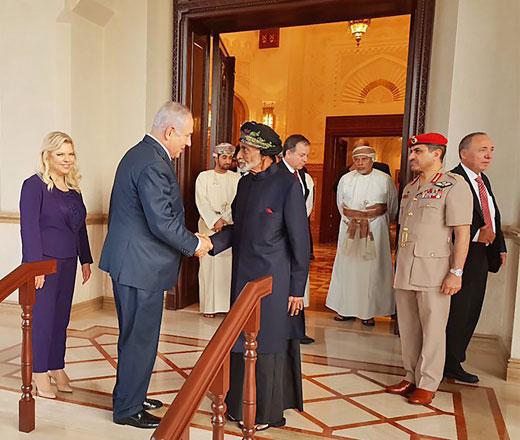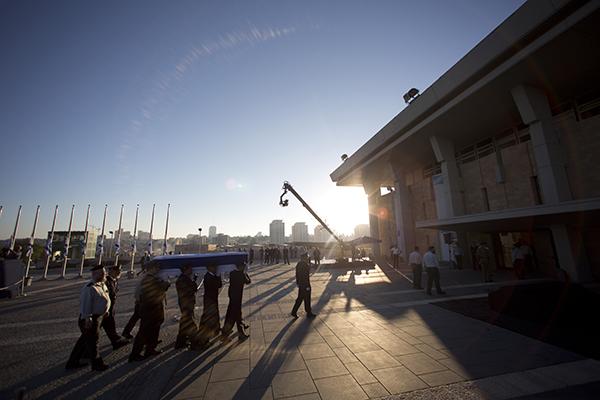You are here
Former Israeli president Peres dies at 93
By Reuters - Sep 28,2016 - Last updated at Sep 28,2016
OCCUPIED JERUSALEM — Former Israeli president and elder statesman Shimon Peres, a joint winner of the 1994 Nobel Peace Prize, died in hospital on Wednesday at 93, two weeks after suffering a massive stroke.
His funeral would take place on Friday at the Mount Herzl cemetery in a section dedicated to “Great Leaders of the Nation”.
US President Barack Obama, French President Francois Hollande and Britain’s Prince Charles are among those expected to attend, Israeli radio reported, although Israel’s foreign ministry could not immediately confirm the attendance list.
An official announcement of Peres’s death was made at the Tel Hashomer hospital near Tel Aviv by his son Chemi and son-in-law Rafi Walden.
Peres was part of almost every major political development in Israel since its creation in 1948. In a career spanning nearly seven decades, he served in a dozen Cabinets and was twice a prime minister.
He was first elected to Israel’s parliament, the Knesset, in 1959 and barring a brief interlude in early 2006, held his seat for 48 years, until he became president in 2007.
He shared the 1994 Nobel Peace Prize with the late former prime minister Yitzhak Rabin and late Palestinian leader Yasser Arafat for reaching an interim peace deal in 1993, the Oslo Accords, which never turned into a lasting treaty.
Rabin was assassinated in 1995 by an Israeli ultra-nationalist who opposed the interim accords, and it was Peres who took over as prime minister after Rabin’s death.
Peres is widely seen as having gained nuclear capabilities for Israel by procuring the Dimona reactor from France while defence ministry director-general in the 1950s.
As defence minister, he oversaw the 1976 Israeli rescue of hijacked Israelis at Entebbe Airport in Uganda.
In the Arab world, his legacy is tainted by the 1996 shelling of a United Nations compound in the village of Qana in southern Lebanon during an Israeli offensive. More than 100 civilians sheltering there were killed. Peres was prime minister at the time, and Israel said its forces had been aiming at militants firing rockets nearby.
Peres was also seen to have done little to rein in the expansion of Israeli settlements on land occupied during the 1967 Middle East war, even if he was not an aggressive proponent of a policy that Obama has described as an obstacle to peace.
Since 2007, when he was elected president at his second attempt, Peres has played more of a ceremonial role, trying to raise Israel’s profile internationally while advocating for peace through his foundation and on foreign travels.
Despite the vast influence he has had on Israel’s political landscape, his death is not expected to have an impact on already dim prospects for a return to peace talks with the Palestinians that collapsed in 2014.
Related Articles
Following is a list of key dates since Jordan and Israel signed a peace treaty 20 years ago
MANAMA — Oman described Israel as an accepted Middle East state on Saturday, a day after hosting a surprise visit by its prime minister that
AMMAN — Deputy Prime Minister for Economic Affairs and Minister of State for Investment Affairs Jawad Anani will attend the funeral of forme


















